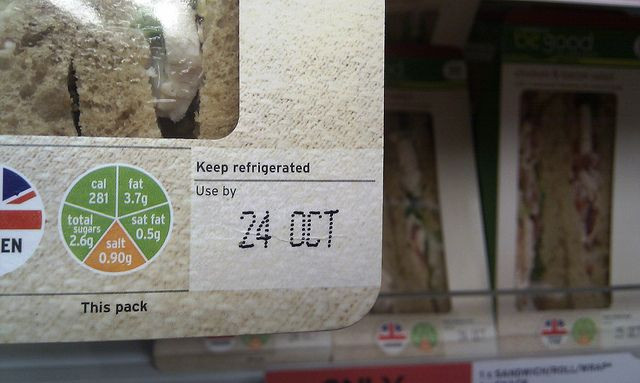How Food Expiration Labels Mislead Consumers: Labeling System Confusing, Inconsistent, According To New Research

Misleading food expiration labels needlessly cause Americans to throw out billions of pound of food every year, a new study has found. The waste is likely the result of a public misconception that “best-by” and “sell-by” labels indicate food safety. According to the researchers, the label rarely aligns with a product’s actual shelf life, as it merely serves to indicate peak freshness.
Co-author Emily Broad Leib of Harvard Law School said that the labeling system is not a safety measure, but rather an inventory tool that helps manufacturers cycle through stock. Unfortunately, the vast majority of consumers are confused by the labels. Due to a widespread adherence to printed dates, exorbitant amounts of natural resources and labor go to waste every day.
"The labeling system is aimed at helping consumers understand freshness, but it fails - they think it's about safety,” she explained. “And (consumers) are wasting money and wasting food because of this misunderstanding."
In addition, the food labeling system is subject to inconsistent regulation. According to Reuters, expiration dates have no binding federal standards, and can differ vastly between states. Such disparities problematize consumer estimates, and may cause people to rely habitually on printed expiration dates. For this reason, the researchers argue that food labels should not be visible on individual products.
Broad Leib and her colleagues are not the only opponents of the current labeling system. In a statement released Wednesday, Congresswoman Nita Lowey (D-NY) argued for a consistent federal standard.
“Under the current patchwork of state and federal laws, consumers are left in the lurch, forced to decipher the differences between 'sell-by' and 'best if used by,' and too often food is either thrown out prematurely, or families wind up consuming dangerous or spoiled food,” she said.
Food safety scientists Theodore Labuza of the University of Minnesota said that in his 30 years of research, he has never encountered an incident of food poisoning related to an “expired” product kept in the refrigerator. In his experience, virtually all foods can endure past their expiration dates, provided that they are stored properly.
"People think the use-by date means either the product is going to die or you're going to die if you eat it. And it's just not true. You can't tie shelf life to a date," he explained. "If the food looks rotten and smells bad, you should throw it away, but just because it's past the date on the package, it doesn't mean it's unsafe."



























